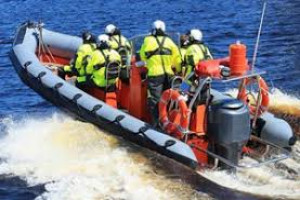Description
Date
1st Batch: 17th – 19th Mar, 2025
2nd Batch: 26th – 28th June, 2025
3rd Batch: 15th – 17th Sept, 2025
4th Batch: 8th – 10th Dec, 2025
Event Details
At the end of this training, participants should be able to:
- Understand the aviation industry
- Explore aviation business models
- Familiarize with aviation economics
- Gain knowledge of aviation marketing and customer service
- Understand aviation finance and accounting
- Explore aviation operations management
- Learn about aviation human resource management
- Develop skills in aviation strategic planning
- Gain insights into aviation regulatory compliance
- Explore aviation quality management systems
- Develop an understanding of aviation business ethics and corporate social responsibility
CONTENT:
Introduction to the Aviation Industry
- Overview of the aviation industry and its significance
- Key stakeholders in the aviation sector
- Global and regional aviation market trends and forecasts
Aviation Business Models
- Airlines: Types, operations, and business strategies
- Airports: Functions, revenue streams, and airport management
- Aircraft Manufacturers: Coursesion processes, market dynamics, and industry challenges
- MROs (Maintenance, Repair, and Overhaul): Services, operations, and customer requirements
- Ground Handling: Roles, responsibilities, and service quality standards
Aviation Economics
- Supply and demand in the aviation industry
- Pricing strategies and revenue management techniques
- Cost structures in aviation businesses
- Profitability analysis and financial performance metrics
Aviation Marketing and Customer Service
- Aviation marketing strategies and segmentation
- Branding and customer experience management
- Distribution channels and ticketing systems
- Customer service excellence and handling customer complaints
Aviation Finance and Accounting
- Financial statements in the aviation industry
- Budgeting and financial planning
- Cost control and cost management techniques
- Financial performance analysis and key financial indicators
Aviation Operations Management
- Fleet planning and management
- Flight scheduling and optimization
- Ground operations and airport infrastructure
- Safety management systems and emergency response planning
Aviation Human Resource Management
- Human resource challenges in the aviation industry
- Recruitment and selection processes
- Training and development programs
- Performance management and labor relations
Aviation Strategic Planning
- Strategic management principles and concepts
- SWOT analysis and competitive positioning
- Risk management and mitigation strategies
- Long-term sustainability and growth planning
Aviation Regulatory Compliance
- International and national aviation regulatory bodies
- Safety regulations and compliance requirements
- Security measures and passenger screening procedures
- Environmental sustainability and carbon emissions management
Aviation Quality Management Systems
- Quality management principles in aviation
- Quality assurance processes and audits
- Safety management systems and risk assessments
- Continuous improvement and performance measurement
Aviation Business Ethics and Corporate Social Responsibility
- Ethical considerations in aviation business management
- Safety and security ethics
- Environmental sustainability and green initiatives
- Community engagement and social responsibility practices
Emerging Trends and Technologies in Aviation Business Management
- Digitalization and automation in aviation operations
- Data analytics and predictive modeling
- Sustainable aviation initiatives and alternative fuels
- Future trends and innovations in the aviation industry
TRAINING METHODOLOGY:
The training methodology combines lectures, discussions, group exercises and illustrations. Participants will gain both theoretical and practical knowledge of the topics. The emphasis is on the practical application of the topics and as a result participant will go back to the workplace with both the ability and the confidence to apply the techniques learned to their duties.





